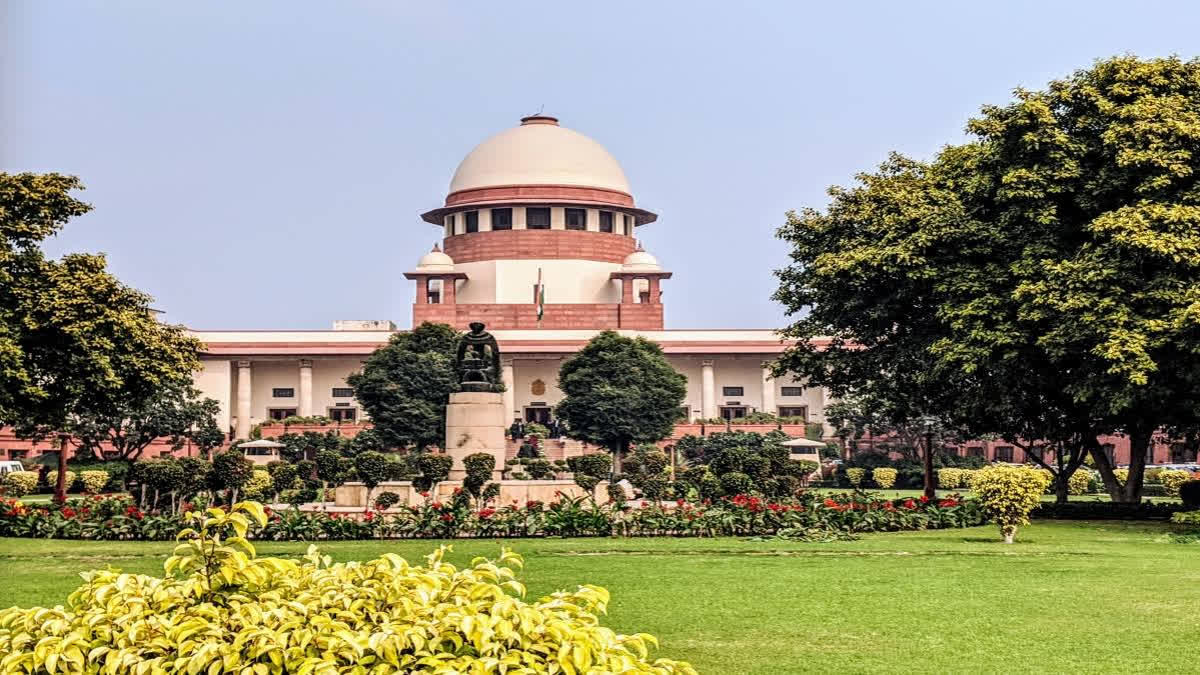New Delhi:The power of the states to regulate industrial alcohol is plenary and cannot be trampled by the Centre, the Uttar Pradesh government told the Supreme Court on Thursday while emphasising that the term "intoxicating liquor" should be given a wider meaning to include industrial alcohol and should be brought within the ambit of the states' law-making power.
Senior advocate Dinesh Dwivedi, appearing in the court on behalf of the Uttar Pradesh government, told a nine-judge Constitution bench headed by Chief Justice D Y Chandrachud that all liquids containing alcohol come within the ambit of "intoxicating liquor".
"The legislative history clearly shows that the words 'intoxicating liquor' are wide enough to include industrial alcohol and all the liquids consisting of alcohol.
"The word 'intoxicating' can mean both (a) capable of causing intoxication or has the potentiality for it and (b) causes intoxication when had as it is, namely as beverage. Both the aspects should fall under Entry 8 to include 'all liquids containing alcohols'," Dwivedi told the bench, which reserved its verdict in the matter after hearing the submissions for six days.
The bench, also comprising Justices Hrishikesh Roy, Abhay S Oka, B V Nagarathna, J B Pardiwala, Manoj Misra, Ujjal Bhuyan, Satish Chandra Sharma and Augustine George Masih, heard arguments from Attorney General R Venkataramani, Solicitor General Tushar Mehta, senior advocates Dwivedi and Arvind P Datar, who appeared in the court on behalf of the Uttar Pradesh government, and other lawyers representing different states.
Industrial alcohol is not meant for human consumption. While Entry 8 in the State List under the 7th Schedule of the Constitution gives the states the power to legislate on the manufacture, possession, transport, purchase and sale of "intoxicating liquors", Entry 52 of the Union List and Entry 33 of the Concurrent List mention industries whose control is "declared by Parliament by law to be expedient in public interest".
While both Parliament and state legislatures can enact laws on the subjects mentioned in the Concurrent List, a central law will have primacy over the state law.
